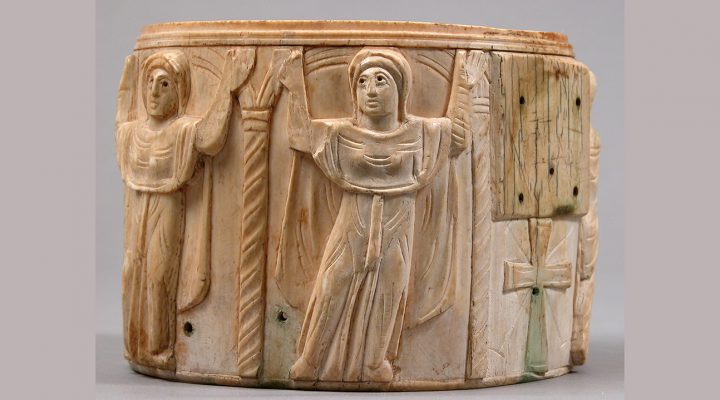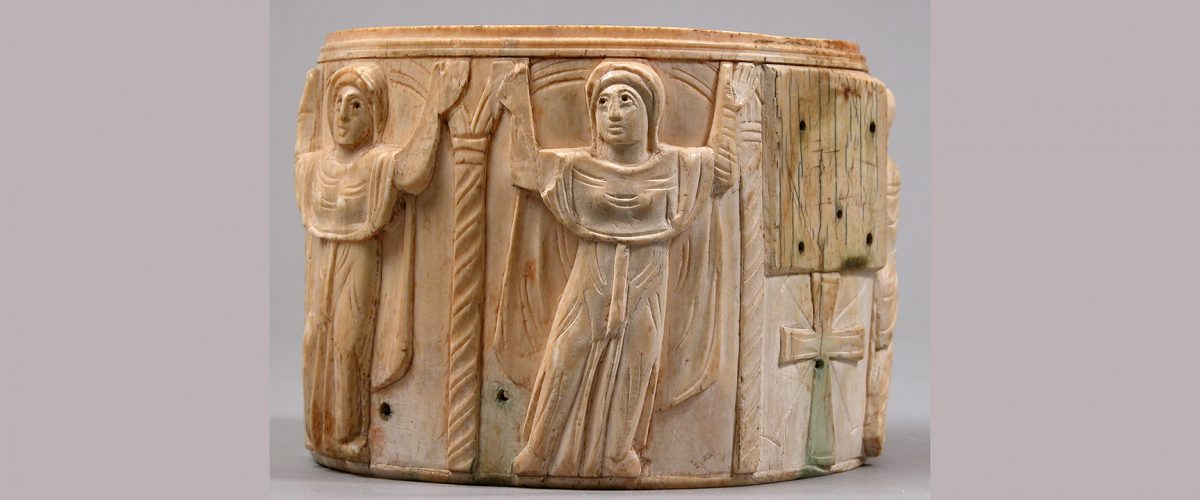I think I know why the women were too terrified to say anything that first Easter morning.
It’s the Gospel of Mark’s year in the Lectionary, which means this Easter we were left with an unsatisfying ending to the resurrection story. You know Mark, always in a hurry to get to the point, leaving us with an ending so abrupt that scribes had to come in later and add a double “PS” at the end to tie it all up in a pretty bow.
The women visit the tomb (as they do in the other Gospels) and are amazed to find the stone rolled away. Inside the tomb they are met by a man dressed in a white robe with an important message, “Do not be alarmed; you are looking for Jesus of Nazareth, who was crucified. He has been raised; he is not here. Look, there is the place they laid him.”

Brittany Stillwell
Mark’s Gospel ends with this ominous sentence: “So they went out and fled from the tomb, for terror and amazement had seized them, and they said nothing to anyone, for they were afraid.”
Easter Sunday, my pastor preached on this text and wisely suggested this wasn’t a “fear of snakes” kind of terror but instead the fear that often comes when we realize something big has just happened and in an instant everything has changed. I can resonate with that kind of fear, and I’m sure most people can. Every once in a while, something happens that is so monumental, life never will be the same. It can be good, joyous, redemptive news and still be scary.
This year, this terrifying, silencing, good news hit me differently. Maybe it’s because it was the last day of Baptist Women in Ministry Month of Advocacy and we were ending a month-long emphasis uplifting the women in our churches who lead and serve and preach. Maybe it was because Easter was a monumental moment for one of my good friends and colleagues as she preached her first Easter sermon and, quite probably, the 208-year-old church’s first Easter sermon preached by a woman. Maybe I was just feeling feisty. Regardless, in the middle of the sermon, it hit me: “I think I know why the women were too terrified to say anything.”
They were women. They couldn’t anxiously run home, burst in the door and announce: “Christ is risen! He is risen indeed!” They couldn’t even carefully and meticulously prepare a homiletical masterpiece that pulls in all the previous teachings of Jesus and emulates his rhetorical teaching style, all while adding their own unique voices to this sermon. They knew all too well that no matter how true it was, no matter how amazingly important this news was, no matter how well-prepared their words were, no matter how long they had studied under Jesus himself — no one would listen.
“If the women dared to speak, their words would be declared nonsense.”
If the women dared to speak, their words would be declared nonsense (Luke 24:11), or even worse, a man would be sent to verify the facts, only to return with no real clarity (Luke 24:12). Not even their firsthand witness account would hold up in a system where religious institutions can use their authority and resources to silence the truth (Matthew 28:11-15).
Yes, the risk of being discounted and ignored was real, but I don’t think that’s what left them terrified. They were used to that by now. No, I think they were terrified because once they started talking — and they would start talking, they couldn’t keep this inside — it would change everything. The more they used their voices, the more comfortable they would get using their voices. The more they shared the good news, the more it would burn within them, dying to get out.
This news would change everything: relationships with family and friends who insisted these women must have misunderstood Jesus’ command to go tell, relationships with the church that wouldn’t have space for their new calling, relationships with the men in their lives, however well-meaning they might be, who would have to become the voice so the good news could be heard.
And it won’t just change the here and now. What will they tell their daughters when the good news starts burning within them too? What kind of retaliation will they face when they dare to use the voice God has given them? I think they are terrified because they know Jesus’ command to go and tell won’t just permanently alter their lives but will make life harder and more complicated for all the women who will come after them.
Maybe I know why the women were too terrified to say anything, because I, too, live with that fear. There are times when my words are discounted and disbelieved and even systematically silenced by the powers they threaten. There are times when I, too, must be silent — whether because there isn’t a pulpit that will have me or because the world doesn’t have space for what I have been given to say. All too often God speaks, and I come away amazed and terrified, wondering what to do with the Word burning in my soul.
And yet, like my grandmothers who first received this good news, eventually I will speak, because resurrection demands it. Because even if the world is slow to catch up, all that seeks to silence the marginalized was buried in the tomb. And on that first Easter morning (and every morning since) stifled voices everywhere were liberated to share the good news — that Christ has risen. He is risen indeed.
Brittany Stillwell serves at Second Baptist-Downtown Little Rock as associate pastor with students and families and is a graduate of Baptist Seminary of Kentucky.


